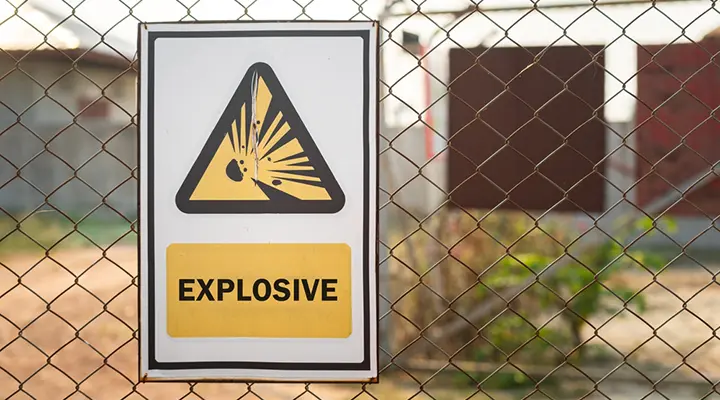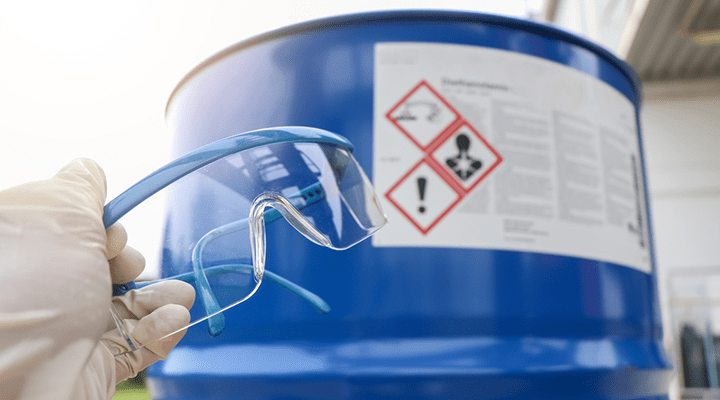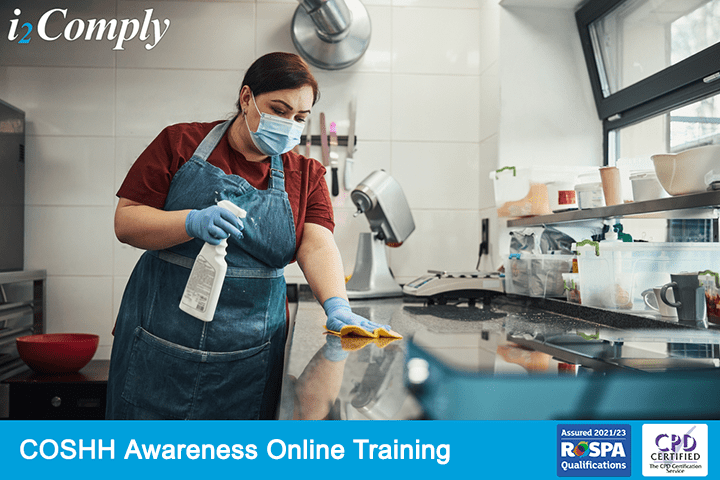You have heard COSHH mentioned here, there & everywhere, but you don’t know what it means or whether it’s something you need to know about. If you’ve been getting confused about all things COSHH, this simple guide will quickly help you get to grips with the ins & outs, along with advice in undertaking COSHH training.
What does COSHH stand for?
COSHH stands for the Control of Substances Hazardous to Health.
It is the law that requires employers to prevent or reduce employees’ exposure to dangerous substances. COSHH aims to protect workers’ health and safety against the adverse effects of harmful substances at work.
Which hazardous substances are covered by COSHH regulations?
Hazardous substances include chemicals, products containing chemicals, fumes, dust, vapours, mists and gases.
Nanomaterials are also included in COSHH regulations, and so are biological agents and germs that cause disease. Nanomaterials are made of very small or ‘nano’ particles. These tiny particles can get into the lungs or through the skin and cause cancer. Biological agents include bacteria, viruses, fungi and parasites.
COSHH regulations do not cover lead, asbestos or radioactive substances because there are separate regulations for these substances. If you are keen to learn about asbestos, we provide an IATP-approved asbestos awareness course.
Are there hazardous substances in my home or workplace?
Most homes use some potentially harmful substances. Widespread materials such as cleaning products contain chemicals that provoke or worsen asthma or chronic obstructive pulmonary disease (COPD) symptoms. This makes cleaning uncomfortable and potentially dangerous. View this list of less-harmful products you should consider when you’re preparing to clean.
In 2015 a woman died as a result of using hair dye in an enclosed space. However, COSHH regulations do not cover the use of hazardous substances in the home.
You may be surprised to know that water, when handled and disposed of incorrectly, can pose a hazard, too. We have an environmental awareness course which looks specifically at water consumption.
Most workplaces make use of some hazardous substances. Bleach and acid are used in a lot of workplaces. Solvents, which are found in products like paint, paint stripper and glue, give off gases that are harmful when you breathe them in. Clouds of wood dust or flour can also be inhaled and cause harm.
What do I need to do about COSHH?
All employers must assess the risks to employees, visitors and the general public from hazardous substances used in the workplace. They must take action to reduce the possibility of harm as much as is reasonably possible.
Employees must follow health and safety procedures at work, they must report any problems they find and they must use any PPE that is provided to them. More information on what employers need to know can be found in our article The COSHH hazards your business should know.
Who needs COSHH training?
COSHH regulations apply in every workplace. They apply to self-employed people and to organisations who employ people. They don’t apply in your home, but you should still protect yourself from harmful substances.
Managers need COSHH training so they understand their legal responsibilities. The people who carry out the COSHH risk assessment need to be trained so they have an overview of the whole process and can perform their duties. Employees need training so that they are informed about the risks in their workplace and know what to do to protect themselves. Everyone, including site visitors, needs to know what to do if there is an accident or emergency.
You can do COSHH training online or in a classroom. If you are looking for a cost-effective solution, that allows your workforce to take the training at a convenient time, then online training will meet your needs.
Where can I get COSHH training?
I2Comply offer a good value 1 hour interactive course that you can do online. The training materials have been through the RoSPA assurance process and have their approval. Visit our website to learn more about the our COSHH training course.




